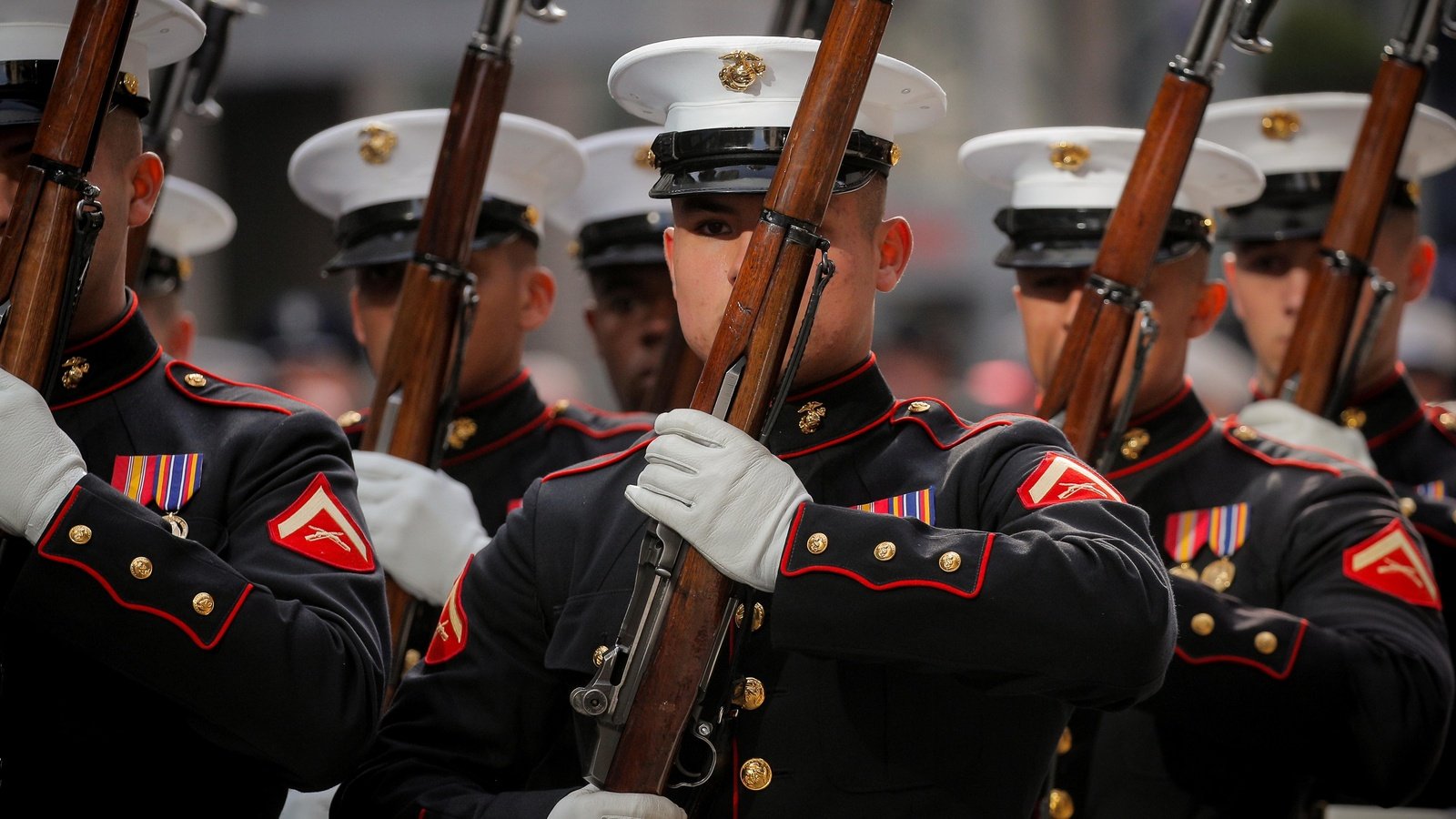For eight years, Senator Kirsten Gillibrand of New York has introduced the same bill in the Senate: the Military Justice Improvement Act (MJIA). Despite the fact that this bill has failed year after year, Gillibrand’s bill has time and time again been cosponsored by the most unlikely of allies – Texas Senator Ted Cruz. Thus, this bipartisan alliance between Gillibrand and Cruz which spans one of the widest ideological gulfs in American politics certainly raises the question: how can such a niche topic generate such an alliance, and further, why has this bill failed every year it has been introduced?
It’s important to begin by noting that the MJIA is to military justice what something like universal healthcare is to the healthcare system – a reconstruction from the ground up of how a major institution functions.
Like with healthcare reform, the bill is designed to target a perceived fundamental flaw. For decades, the United States military has been dealing with an epidemic of sexual assault. As Senator Gillibrand noted in 2019, “the most recent Defense Department survey reported 20,500 estimated cases of sexual assault in the military, up from 14,900 in 2016. For women, the story is even worse, with 50 percent more women in the military experiencing sexual assault compared to two years ago.”
What is the problem? Supporters of the MJIA believe that the root cause is found in the structure of military justice itself; they point to the fact that the individuals who make charging decisions in criminal cases are the military commanders of the accused. Evidence for this being the root cause, they claim, can be found by comparing the number of reported cases with the number of cases referred by commanders to trial. There are tens of thousands of reported sexual assaults each year. Compare that to the number of cases that commanders have sent to trial. In 2015, it was 543. In 2017, it was 406. In 2018, it was 307. As the number of reported sexual assaults skyrocket, the number brought to trial have dropped. They are running in opposite directions.
The Problem
The military justice system operates under a principle called “command prosecutorial authority”. As the name suggests, commanders have the authority to prosecute. In the civilian world, there are independent prosecutors who review cases and arrests in order to decide whether or not a case should be pursued. This independent nature works against the fear that, were such decisions placed in the hands of political authorities, that power would then be used to selectively enforce the laws.
However, in the U.S. military justice system, commanders, who can be potentially close to the people involved, have the final say over who to prosecute. Even further, in the past, commanders have had full control over the accused’s court case. Until very recently, they have had discretion to modify or disapprove trial results, to quote the Manual for Courts-Martial, “for any reason or no reason.”
That isn’t to say that there has been no improvements over the years; these powers have been limited in substantial ways over time. “Unlawful command influence” in a case is a crime, and the scope of specific powers is more complicated than is recounted here. Yet none of the reforms have targeted the core issue: the fact that commanders have the final charging decision. This is what the Military Justice Improvement Act would change. It is a simple and short bill; it simply moves the ability to choose which cases to prosecute to an independent judge advocate, a military lawyer with legal training outside the chain of command.
The Case for Command Prosecutorial Authority
This is a reform that much of the west has already adopted, but supporters of command prosecutorial authority remain. There are many arguments made, but the most common is about command responsibility. As Lieutenant Colonel James T. Hill notes in Military Law Review, Volume 228, Issue 4:
“A commander’s responsibility is best understood as a byproduct of authority that all formal leaders possess to varying degrees. It has two components: ‘[t]he right to give orders’ to subordinates and ‘[t]he power to exact obedience.’ ‘Responsibility,’ by contrast ‘is a corollary of [that] authority, it is the natural consequence and essential counterpart, and whatsoever authority is exercised, responsibility arises.’ Removing a commander’s authority to ‘exact obedience’ therefore necessarily eliminates his responsibility for its exercise, which, in turn, risks subordinates’ diminished obedience to command directives—a risk U.S. courts have long sought to counter in the military context.’
In other words, commanders must be able to directly punish soldiers in order to legitimately command obedience, keep them in line, and to “maintain good order and discipline”.
There is an additional fear that removing such a power opens up commanders to liability. A key component of the laws of war is that commanders are responsible for the actions of their subordinates, especially if they commit war crimes. If soldiers are less incentivized to follow orders due to a lack of fear of punishment, then commanders could be exposed to legal jeopardy resulting from their responsibility to control their unit. Now, commanders cannot be prosecuted for the nonuse of powers that they no longer have, but in many war crimes cases commanders have a form of strict liability – they are always responsible for their subordinates, which is designed to incentivize them to affirmatively prevent criminal actions. That liability would likely remain with the MJIA, while simultaneously weakening the ability of commanders to comply. Of course, most commanders not only fear legal jeopardy but legitimately want to prevent criminal activity. Yet with no real penal powers, it is much harder for them to do so, especially as they are the ones with the most authority on the ground (especially in confusing wartime situations) and thus best positioned to cause change. The argument is that effective control of troops in wartime can’t come from the abstract fear of investigation after the fact (which many soldiers may doubt will ever lead to anything concrete given the difficulty of doing such investigations during a war), but rather from the fear of commanders there with them charging them with crimes. In order to enact such control, there needs to be “unity of command”: the same people making the orders need to be able to enforce them.
Some types of cases are, some claim, uniquely positioned for commanders to prosecute. For example, consider the crime of a soldier failing to do “his utmost to encounter, engage, capture, or destroy any enemy troops.” How is a non-combat lawyer supposed to judge that properly when it comes to deciding whether to prosecute?
There is an additional issue that independent prosecutors have an entirely different objective. The goal of any independent prosecutor is justice for a given crime; they are not supposed to consider any other larger social concerns. Conversely, the sole goal of a commander is to win the war. These independent prosecutors, charged with an entirely different objective than a commander, splinter the focus of the military. It is argued that justice needs to exist only to the extent possible within the functional purpose of a military – the military deserves “unity of direction”.
Weaknesses in that Argument
However, many of these arguments do not accord with the empirical evidence. Regarding the argument about command responsibility, it is enough to point to the empirical evidence: nations with independent prosecutors in the military, such as the United Kingdom and Canada, have not seen a diminishment of the ability of commanders to control. The fear of prosecution seems to be enough of an incentive. Indeed, compliance with the law may have gone up, as service members can no longer bet on the commanders letting things slide when it is an independent body making charging decisions.
Likewise commanders have not feared additional legal jeopardy. In many cases the laws around war crimes and similar offenses have simply shifted or diminished command liability, and although that may be seen by some as a cost (in theory that reduces the commanders’ incentives to rigorously prevent war crimes), it has not led to an increasing amount of war crimes that could not be better explained by other factors (like the start and end of combat). Modern laws often stipulate referral to prosecution, the most a commander can do, is enough to fulfil their responsibility, and there is no reason the U.S. cannot make a similar modification. After all, commanders cannot be punished for not prosecuting when that literally is not a power they have.
Additionally, while there may be some cases on the margins where lawyers may lack sufficient knowledge, those are likely quite rare and, more importantly, don’t pose a challenge that cannot be fixed without including elements such as commander testimony. Cases like this are likely a small portion of possible cases, given the size of the military, and the real problem is all the cases that commanders, not lawyers, wouldn’t prosecute. Those cover any possible offense, in and out of combat, where the incentives or personal opinions of commanders run contrary to the dictates of the law and justice.
The Case Against Command Prosecutorial Authority
Senator Gillibrand and others believe the cause of the inability of the military to punish sexual assault comes from commanders simply choosing not to prosecute them. Given commanders have final say, victims have no real choice but to hope that they choose to prosecute, and as the evidence shows, the vast majority choose not to. They may do this for a variety of reasons. The military is still very much a “boy’s club”; commanders may view that there is little wrong with the behavior of assaulters, or they may give tacit approval to such behavior. Or, commanders may lack the legal training to determine whether the case would succeed or whether the case should be charged (although they are required to consult with a military lawyer). Commanders may not want to mess with “unit cohesion”, negatively influence the career of a soldier they like, or punish soldiers for such “small” matters when there is a war to fight. Indeed, the idea that commanders would place “national security” over all other matters is precisely the concern – why try any sexual assault case when it rarely impacts the war effort and removing a soldier may be more costly? This logic is a natural result of our institutional designs but repugnant to the core values of America.
Further, when your commanding officer is the one that receives your report and decides whether to move forward with it, there is a naturally occurring “chilling” effect with how many sexual assaults actually end up reported due to fear of reprisals. Commanders, after all, control the accuser’s promotion, the work they are assigned, and the conditions under which they live.
Finally, the current system creates a conflict of interest that reduces the incentive of commanders to prosecute. If a commander wants to be promoted, they have an incentive to hide any signs of trouble or their inability to control their unit. Additionally, if the soldier is an important part of the unit’s success (and thus the commander’s movement up the ranks), there is a similar incentive.
Whatever the reason that a commander has when they use prosecutorial discretion, faith in an impartial justice system is undermined. The ones making the decision of whether to prosecute are close to the case – they know the soldiers, may be friends with them, and may have fought by their side. So long as that remains the case, sexual assaults will never be prosecuted to the fullest extent.
The Present
On International Women’s Day, President Biden pledged to enact an “all-hands-on-deck effort to end the scourge of sexual assault in the military.” On its face, this seems like more of the same. However, there may be a breakthrough in the works. The New York Times notes regarding the effort to change how cases are prosecuted in the military that “President Biden has been a vocal proponent of these changes, even as general after general has gone to Capitol Hill to argue against them over the past decade.” All former Presidents have taken the side of the proponents of command prosecutorial authority – President Biden is the first to take the opposite stance, and he has done so consistently for years.
The new Secretary of Defense, Lloyd Austin, has yet to take as clear a stand as President Biden, but is “open to considering significant revisions to how those crimes are prosecuted, a potential sea change that generations of commanders have resisted.”
There is a very real chance that, after all these years, this is finally the time when reform moves forward. The executive branch appears to be on board. Several high-profile cases have made the issue even more stark in the public eye, and pressure on Congress is mounting to finally handle the truth. After eight years of toil, Senator Gillibrand’s efforts might be vindicated – and thousands of service members, who are willing to sacrifice everything, might finally be given the very rights they are fighting for.
Featured image courtesy of the Council on Foreign Relations.






Comments are closed.